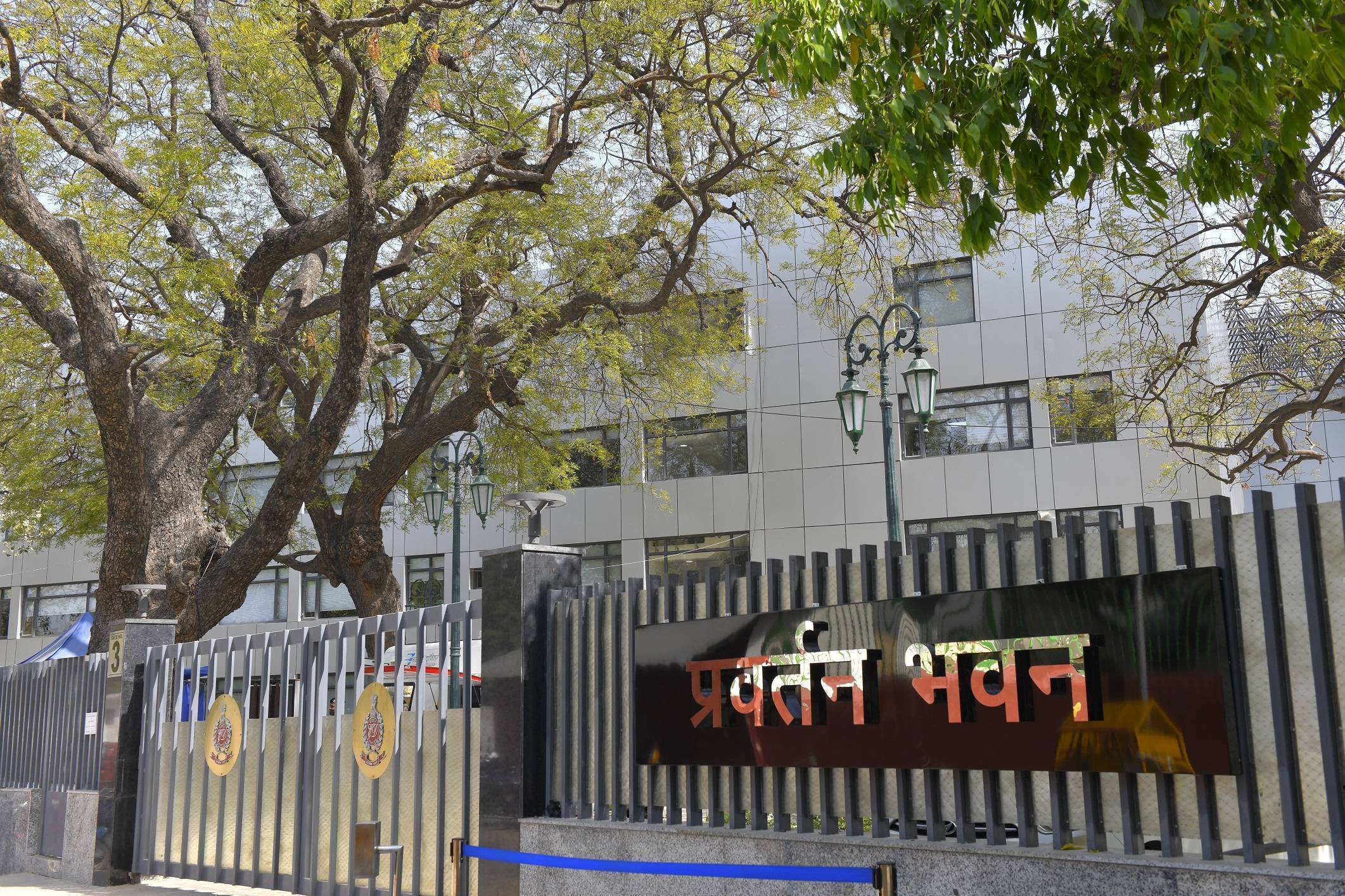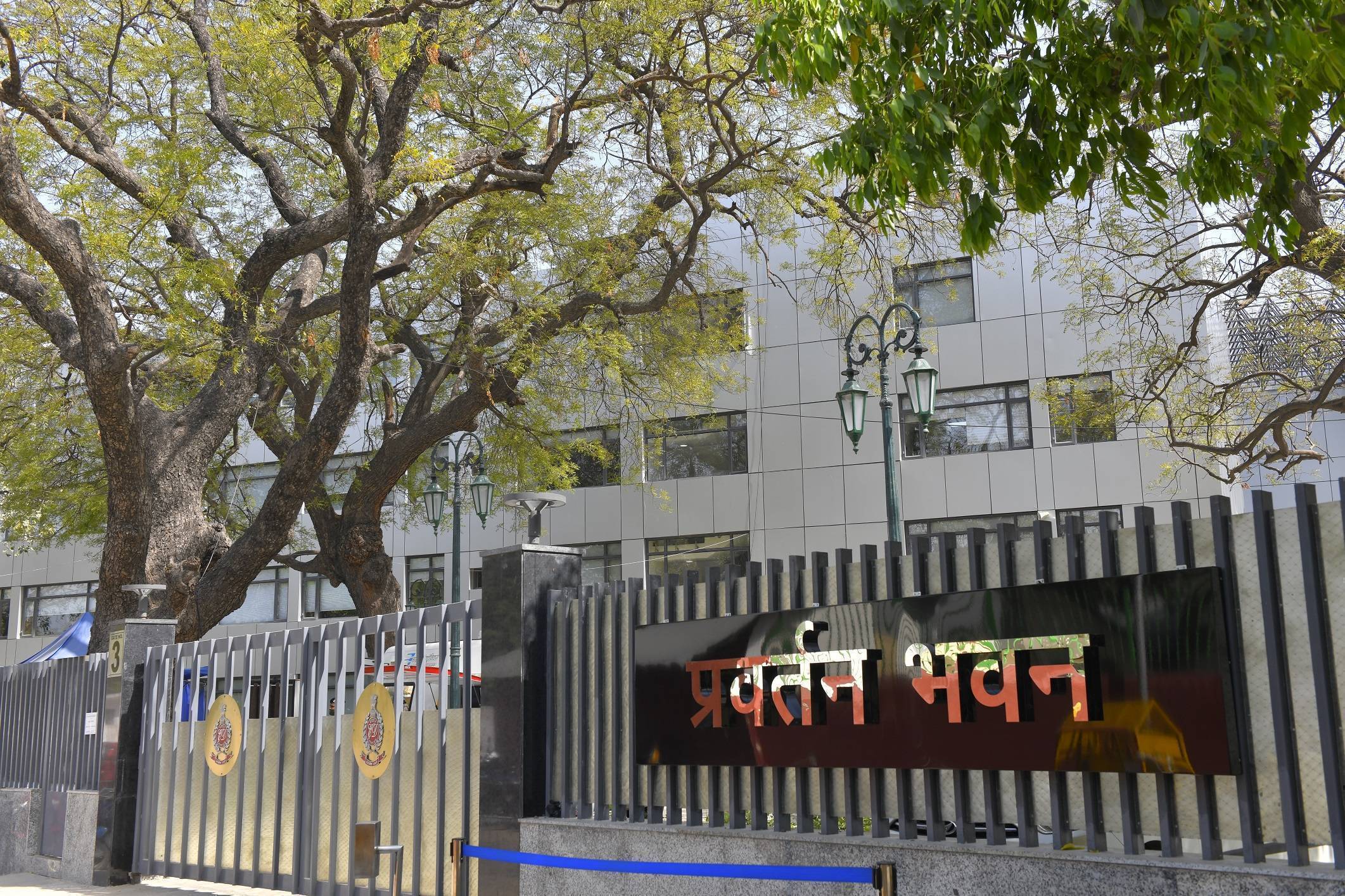The Telangana Real Estate Regulatory Authority (TGRERA) has penalized the promoters of a residential project in Medchal-Malkajgiri district for violations of the Real Estate (Regulation and Development) Act, 2016. A fine of ₹2.85 lakh has been imposed on the developers of the ‘Showri Pearl’ apartment project for failing to register the project under RERA and constructing additional parking spaces and floors beyond sanctioned limits.
The project, located in the Godhumakunta area of Medchal-Malkajgiri, was found to have breached multiple RERA provisions. According to the complaint filed by allottee Manepally Krishnaveni, the developer constructed 20 car parking slots, although only 15 residential units were sanctioned in the approved layout. Furthermore, an unauthorized fourth floor with five additional flats was constructed, increasing the total to 20 units.
TGRERA concluded that the project should have been registered under Section 3(1) of the RERA Act since it exceeded the eight-unit exemption limit outlined in Section 3(2). The promoter's failure to do so amounted to a violation of Sections 3 and 4, attracting penalties under Sections 59 and 60 of the Act.
Parking Irregularities and Owner Disputes
The Authority observed that the developer had demarcated 20 parking slots in the cellar area. This not only contradicted the approved layout plan but also led to disputes between residents regarding parking allocation. The complainant highlighted that the unplanned allocation created access issues, citing her designated spot being obstructed by another parked vehicle.
TGRERA directed the developer to reduce the number of designated parking slots to 15 to match the number of approved units and urged the Apartment Owners Association to ensure a fair and amicable resolution process among residents.
Developer's Defense
In response to the allegations, the promoters—Aduri Prathap Reddy and Bommidi Srinivas Rao—argued that buyers had inspected and approved their respective units and parking spots before finalizing their purchases. They also maintained that the project had been constructed with approval from the Godhumakunta Grampanchayat, implying compliance with local norms.
However, TGRERA emphasized that regardless of local panchayat permissions, the project fell within the purview of RERA regulations due to its size and scope. The Authority reiterated that developers are required to register any project with more than eight units or 500 sq. m of land under the Act.
Alleged Structural Defects
The complaint further mentioned concerns over structural cracks in the building. While these concerns were taken on record, the Authority stated that the available evidence was insufficient to establish structural defects as defined under Section 14(3) of the Act. Residents were advised to formally document such defects and notify the developer in writing to initiate corrective action, as per RERA procedure.
TGRERA's Final Directions
In its final order, TGRERA instructed the developer to:
- Pay a penalty of ₹2.85 lakh for non-registration of the project.
- Restrict demarcated parking to 15 slots, aligning with sanctioned flats.
- Comply with RERA provisions for all future construction activities.
- Facilitate cooperation with the apartment association in resolving parking-related issues.
This enforcement action follows a series of recent RERA interventions in Telangana targeting unregistered or non-compliant real estate developments. Earlier in July, the regulator fined a Hyderabad-based developer ₹4.2 lakh for promoting a project without RERA registration, and in another case, imposed a penalty of ₹14.9 lakh on a promoter for failing to register and refund money to buyers.
The case highlights increasing scrutiny by Telangana RERA over residential projects in peri-urban areas where developers often cite gram panchayat approvals as sufficient compliance. The Authority's stance reinforces that state-level RERA rules override local permissions when project parameters trigger registration thresholds under the Act.
For homebuyers, the case underscores the importance of verifying RERA registration and approved layout plans before booking units. It also highlights the legal recourse available under the Act for grievances related to unauthorized construction, lack of disclosures, and faulty common area allocations.
Image source- telangana.gov.in









.png)